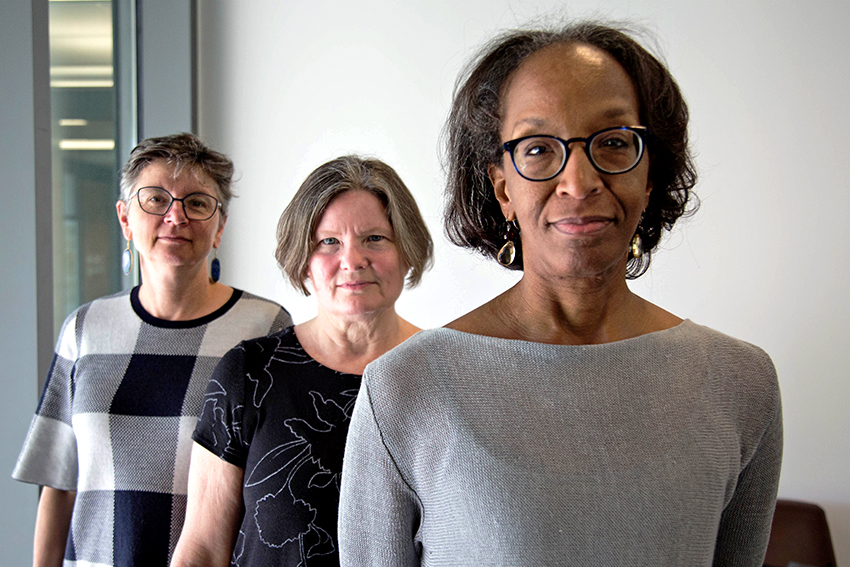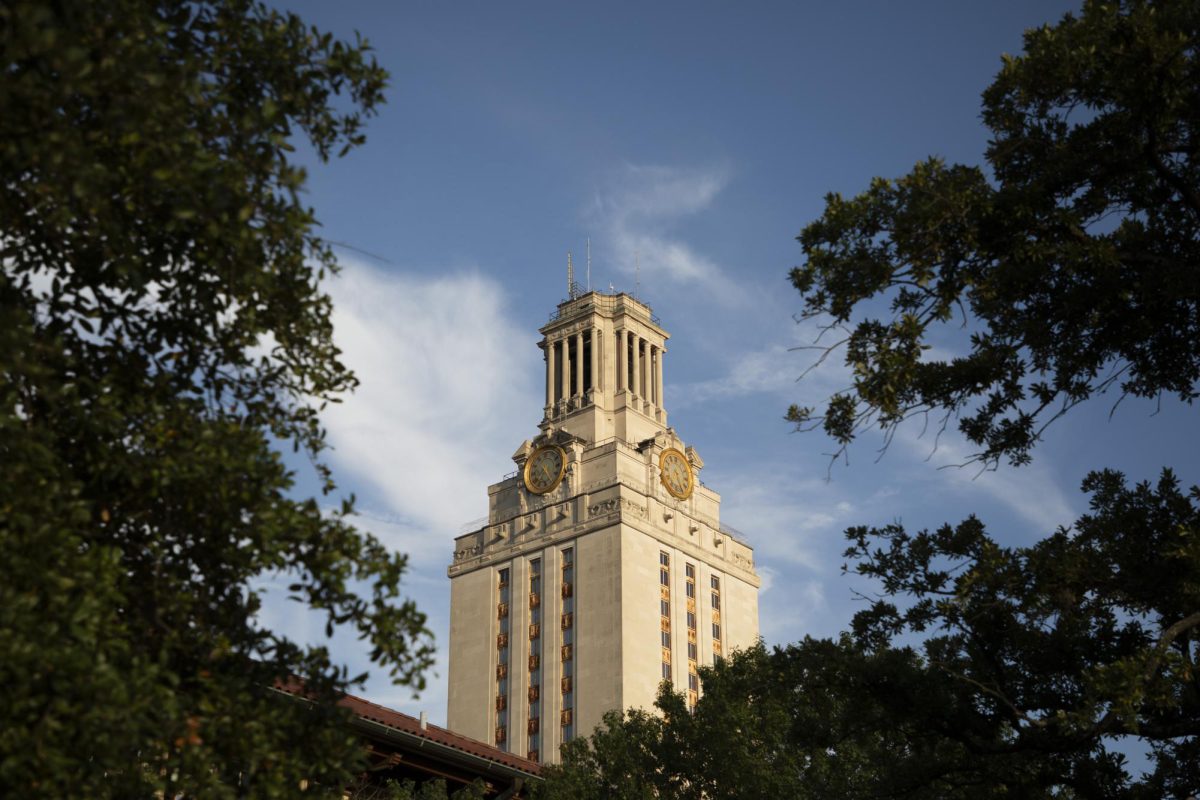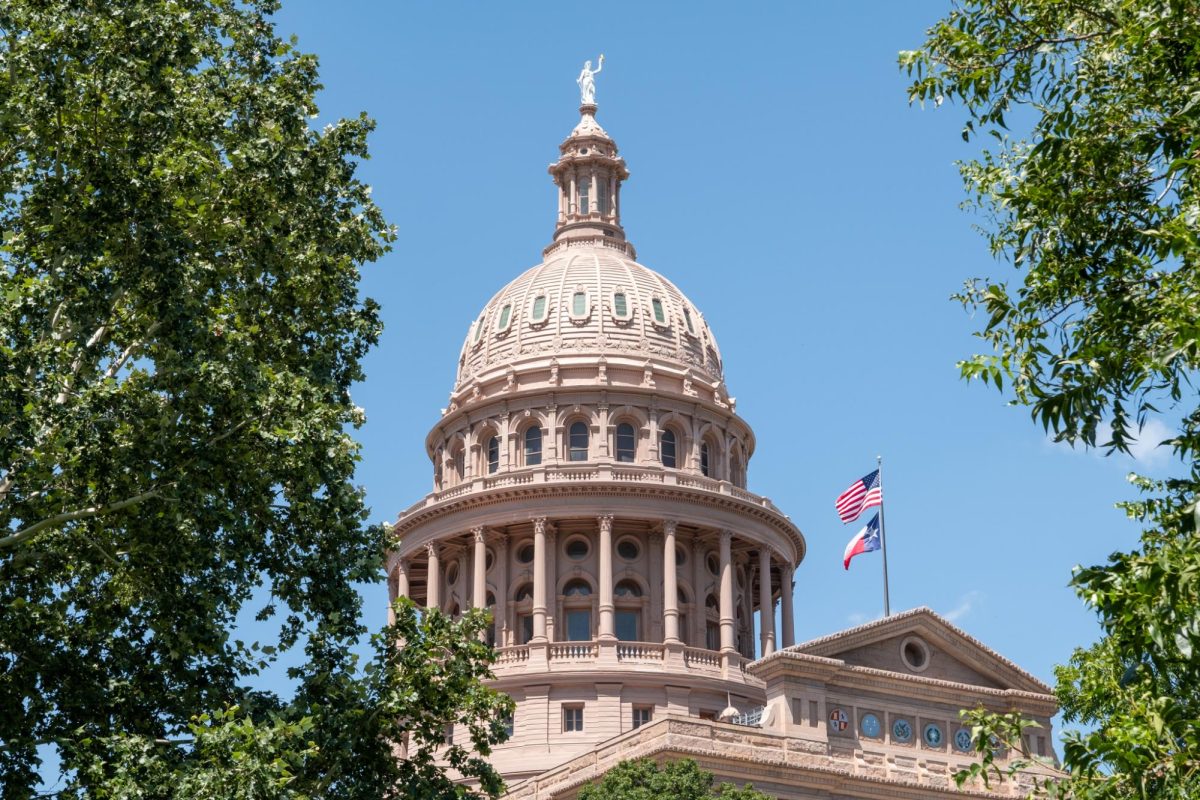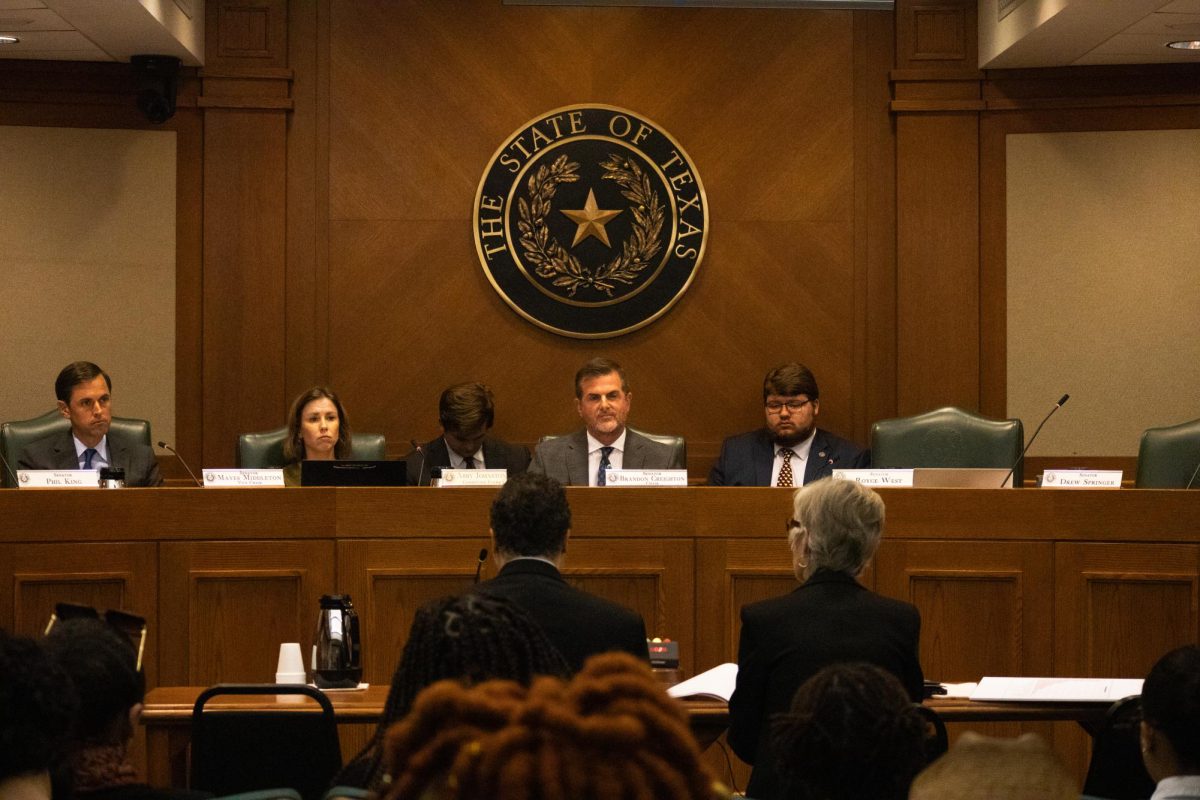With February’s mass shooting in Parkland, Florida, still fresh on her mind, Jennifer Glass said she sees her legal fight against the state’s campus carry law in a new light.
“It really feels like a different world,” said Glass, a UT sociology professor. “It felt before like we were doing this rear-guard legal action, and now, I feel like there’s a (wave) front.”
Texas’ campus carry law went into effect August 2016, allowing licensed handgun owners to carry concealed weapons into public university facilities. A month before the law was enforced, Glass, along with English professors Mia Carter and Lisa Moore, filed a case in U.S. District Court against Texas Attorney General Ken Paxton, UT President Gregory Fenves and the UT Board of Regents on the grounds that campus carry infringed on their First, Second and Fourteenth Amendment rights.
Last summer, federal judge Lee Yeakel dismissed the case, concluding, “(The) plaintiffs present no concrete evidence to substantiate their fears, but instead rest on ‘mere conjecture about possible actions.’”
The professors’ lawyers immediately appealed, hoping a higher court would reverse Yeakel’s decision. The case is currently in motion to go before the Fifth U.S. Circuit Court of Appeals.
“Personally speaking, I’m not surprised by anything that’s happening,” said Moore, who is also a women’s and gender studies professor. “What we’re trying to do is make a contribution to (the) knowledge and information on this issue that can be used for the bigger picture, changing a culture that’s awash in a tidal wave of guns.”
Although Glass, Moore and Carter all have different expertise, they are all connected in the central belief that guns do not belong in the classroom.
“It’s not surprising that teachers all over the country, from (kindergarten) to (the) university level, are fighting against guns being in the learning environment,” Carter said. “It’s supposed to be a challenging, analytical (and) dynamic space, and it’s our job to create and protect that space.”
Academic Freedom
The professors said they made compelling plaintiffs to bring forth this lawsuit because of who they are.
As the first openly lesbian faculty member hired by UT, Moore said she has been experiencing backlash over the years for who she is and the subjects she teaches. Carter said she endures challenges as a woman of color in a position of authority. Glass, who teaches on topics such as abortion and reproductive rights, said students sometimes express anger toward her because of the controversial topics her classes address.
“I have had things happen in my classroom because the nature of the material I teach,” Moore said. “Had there been a gun in a mix, lives would have been lost, (and) it could have been very volatile.”
Currently, UT allows professors to designate their offices as gun-free spaces, but not their classrooms.
One of the professors’ main arguments is that campus carry threatens their academic freedom to have discussions about controversial topics without having to worry about retaliation. They also said they fear the potential danger guns represent for their students, more so than the danger to themselves.
“I had so many students saying, ‘I’m not going to talk in class anymore. If my interpretation is different, I don’t want anyone to get mad at me,’ and that, to me, is a tragedy,” Carter said. “We’re not afraid of our students, we fear for them.”
The Appellate Process
The plaintiffs have filed their final appellate brief, so now the two parties must wait. Either the circuit court will base its decisions solely off the plaintiffs’ and defendants’ appellate briefs or call for oral arguments from the parties’ lawyers, which is likely in a case like this, said D. Todd Smith, an Austin-based civil appellate lawyer who has argued numerous cases before the Fifth Circuit.
“It’s an interesting case because it’s got (three) UT professors on one side and the state on the other side,” Smith said. “So I suspect it will probably be argued, and it can take anywhere from a few months to longer to schedule an argument.”
Although Fenves is a defendant in the lawsuit, Moore said he is only named because of his official role. She said she feels he has supported her right to free speech on the issue.
“We understand that the lawsuit represents the feelings of many faculty who have expressed concern about the law throughout the process,” University spokesman J.B. Bird said. “That said, they recognize it is the law and has to be followed.”
Paxton’s press office said they could not comment on any pending litigation.
The organization Students for Concealed Carry, or SCC, wrote a brief opposing the professors’ appeal. Quinn Cox, southwest regional director for SCC and accounting senior, said the plaintiffs misstate the intent of campus carry.
“The intent was for a law-abiding, vetted individual, if they are licensed, to be able to carry on a college campus and defend themselves if they so choose,” Cox said. “So if something were to happen at a college campus, they’re not automatically put at a disadvantage.”
Cox said if the professors were to get the lower court’s ruling reversed, it could be detrimental.
“If it is overturned in the appellate court, it can set a dangerous precedent beyond campus carry as to what the definition of academic freedom is,” Cox said. “It isn’t just about campus carry. It has even larger implications.”
Establishing Precedence
Although they lost at the district level, Carter said their lawyers’ work and the case’s impact solidifies success.
“Seeing the (legal writings) that our lawyers brilliantly wrote being taken up across the country and (them) consulting with other attorneys on other cases — that’s already a win,” Carter said.
Moore said she’s not sure if the court will grant the decision they desire, but she knows the professors will continue to debate campus carry.
“Win or lose is not so much the point, as we refuse to have our silence mistaken for assent,” Moore said. “We say no to guns in our classroom, and we’re going to continue to say no with every platform we have available to us.”


















